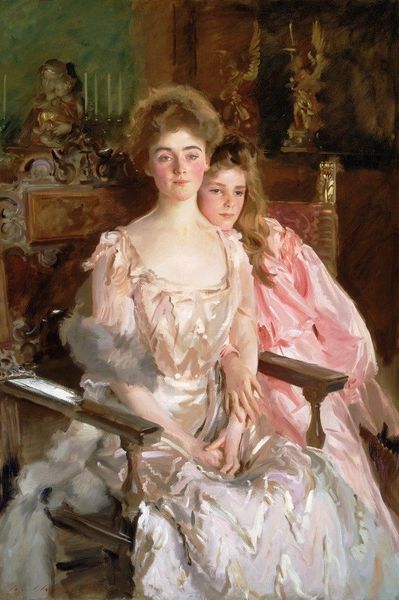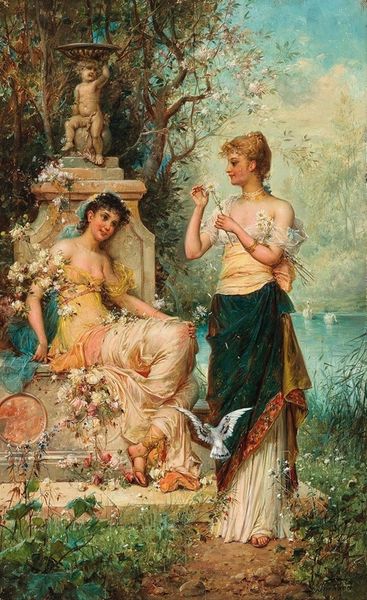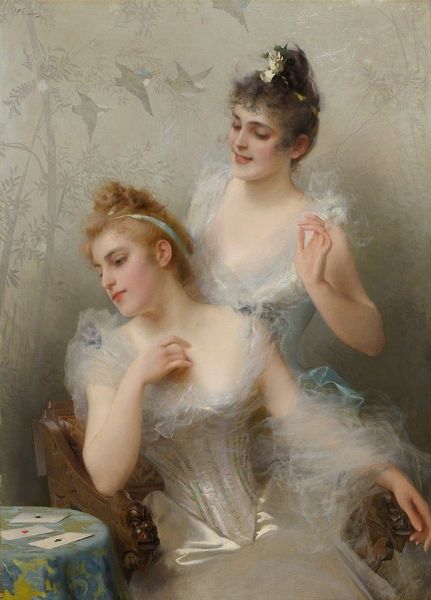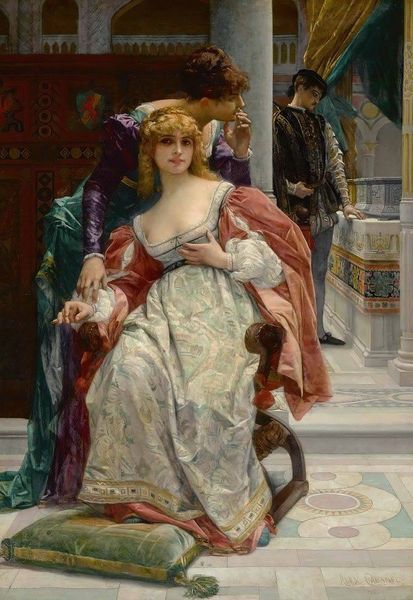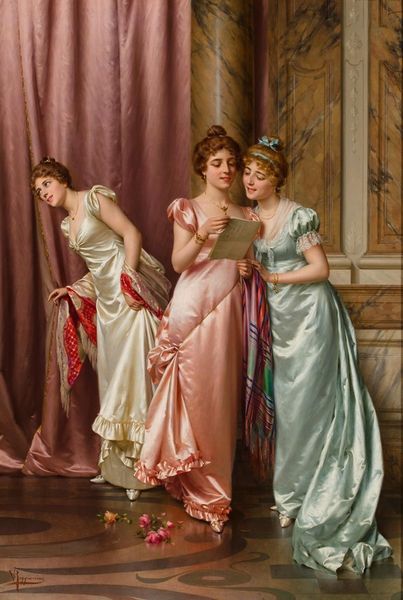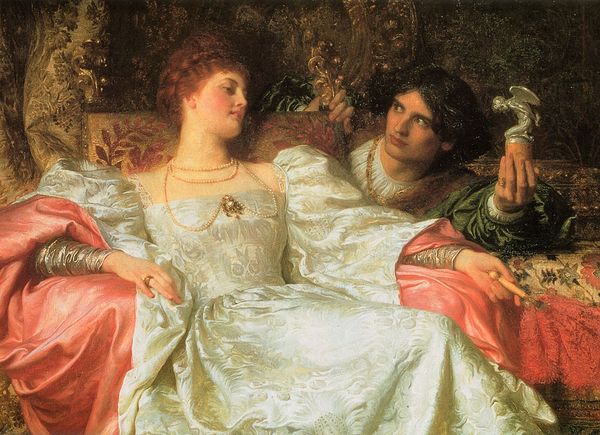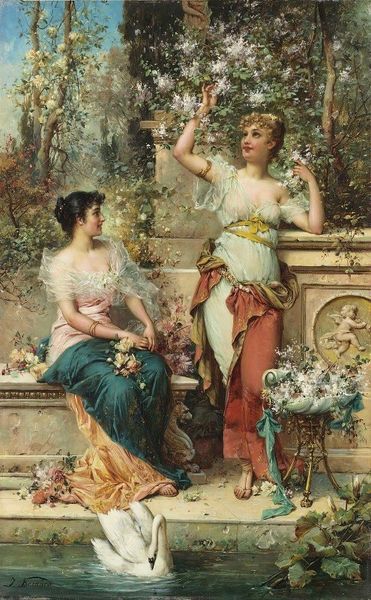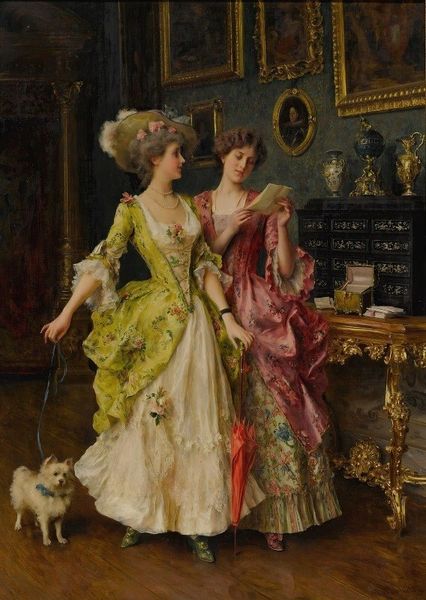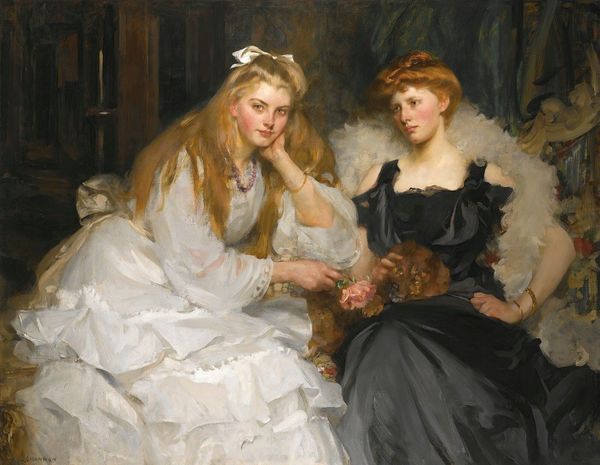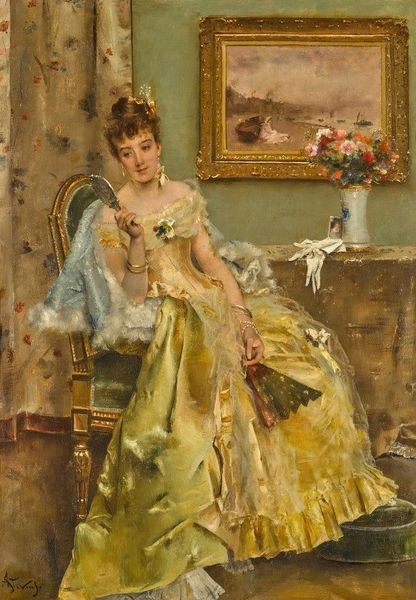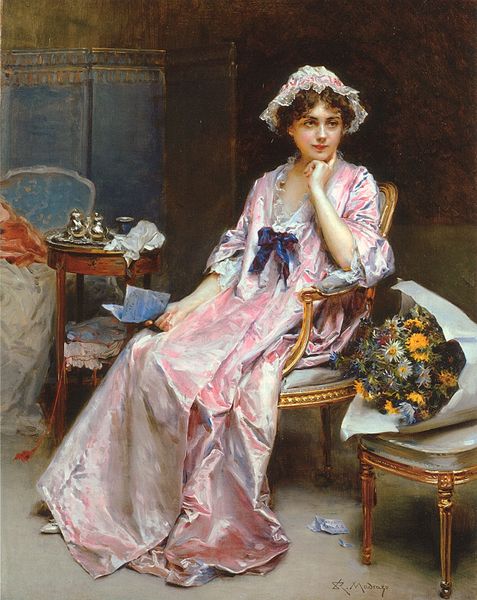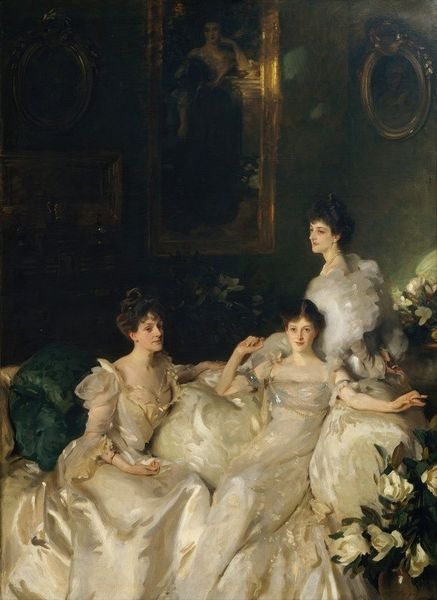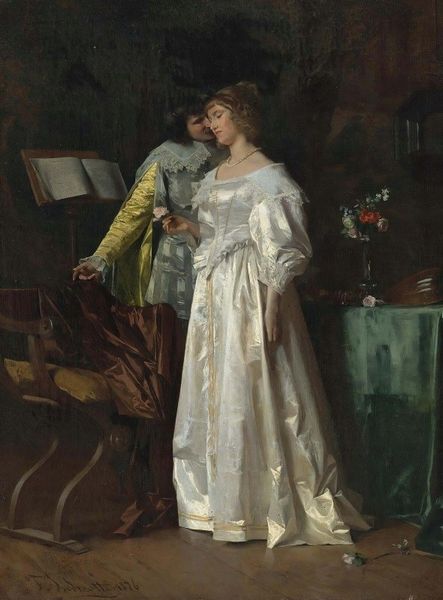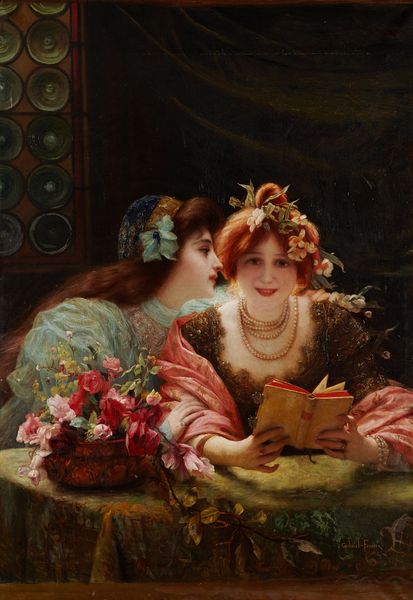
oil-paint
#
portrait
#
gouache
#
figurative
#
oil-paint
#
figuration
#
oil painting
#
intimism
#
romanticism
#
genre-painting
#
history-painting
#
academic-art
Copyright: Public Domain: Artvee
Editor: This oil painting, titled "Betrothed," is by Federico Andreotti. The scene depicts a couple in what seems like a formal setting, perhaps a marriage proposal. There's a definite romanticism to the piece, almost like a stage set. What are your thoughts on it? Curator: I see a carefully constructed narrative deeply embedded in the social norms of its time. While aesthetically pleasing, let's consider the power dynamics at play. The woman’s demure posture and averted gaze, set against the man's confident stance. Does this painting celebrate love, or does it reflect a patriarchal system where a woman's worth is tied to marriage? How does this idealized image reinforce gender roles? Editor: That’s a powerful point. I was initially drawn to the aesthetics—the costumes, the light—but I didn't really consider it within that framework. Curator: Think about the implications: art wasn’t, and still isn’t, produced in a vacuum. Andreotti's romanticism served specific societal functions. It promoted a vision of domesticity and female passivity that served the status quo. Isn’t it our responsibility, as viewers today, to question those ingrained messages, to dissect them and challenge their lingering presence? Editor: Definitely. It's unsettling to think of these "beautiful" images contributing to harmful social norms. Now I am wondering what other societal expectations of women are reflected. Curator: Exactly! And we need to remember that this isn't just a historical artifact. These images contribute to how we understand gender, relationships, and power structures today. It’s a great place to open a more expansive discussion. Editor: Thanks, that's completely changed how I see this painting. Curator: Indeed, art history offers us tools not just to appreciate art, but also to understand the historical contexts shaping how it reflects, and even creates, realities for various audiences.
Comments
No comments
Be the first to comment and join the conversation on the ultimate creative platform.
